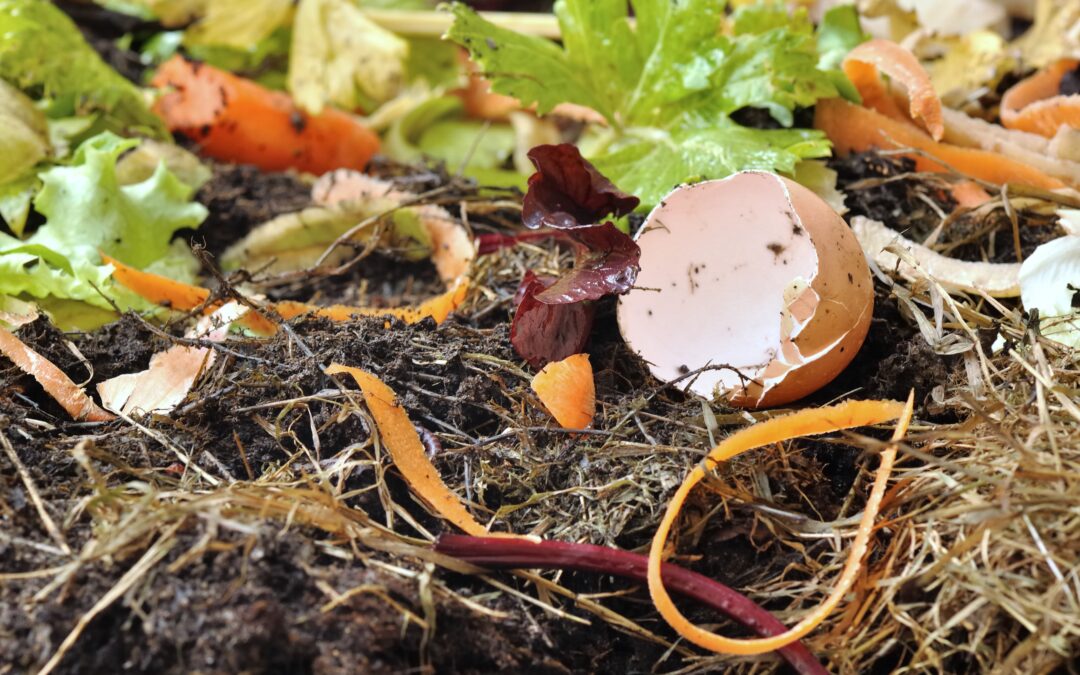Composting is more than just an eco-friendly trend—it’s a way of breathing new life into your garden. It’s the secret ingredient that can transform even the most barren patch of land into a lush, flourishing oasis. Not only does composting help reduce landfill waste, but it also breathes new life into your lawn’s ecosystem, promoting healthier plant growth and enhancing soil fertility.
But how does this humble process of recycling organic waste create such a verdant transformation? This blog post delves into the fascinating world of composting and how it can resurrect your garden into a lush, vibrant paradise.
Provides Nutrients
Composting is nature’s way of recycling, turning organic waste into a nutrient-rich soil conditioner. The magic begins as soon as you start your compost pile or bin with organic material like leaves, grass clippings, and fruit peels. Microorganisms, such as bacteria and fungi, start to break down this organic matter, producing a rich, dark substance known as humus.
This humus is high in nutrients necessary for plant growth, including nitrogen, phosphorus, and potassium, often referred to as N-P-K, the primary components of most commercial fertilizers. Nitrogen promotes leaf and stem growth, phosphorus is critical for root development, and potassium helps improve plant strength and resistance to diseases.
Unlike synthetic fertilizers that require careful application to avoid chemical burns or runoff pollution, compost releases nutrients slowly over time, providing your plants with a steady, long-term food supply. This slow-release system is especially beneficial, as it prevents nutrient runoff in heavy rains and allows plants the time to absorb all the nourishment they need.
Improves Soil Structure
Composting has a transformative impact on soil structure, significantly enhancing its physical properties and fostering an environment conducive to plant growth. At a fundamental level, compost improves soil structure by enhancing its porosity.
As the compost breaks down, it forms aggregates within the soil – small clumps of soil particles that stick together. These aggregates create spaces, or pores, in the soil that allow water, air, and roots to move freely.
This improved soil porosity is critical as it facilitates effective root penetration, allowing roots to access the nutrients they need to thrive and grow. With enhanced porosity, the soil’s water-holding capacity increases, reducing the risk of waterlogging and root rot. This ensures that the plants have a steady supply of water.
The infusion of compost into the soil also aids in combating soil erosion, a common problem that can strip the land of its fertility. Erosion occurs when the topsoil, rich in nutrients, is carried away by wind or water.
The compost’s ability to improve soil structure helps reduce soil erosion by increasing the soil’s capacity to absorb water and enhancing its cohesiveness. This makes it less susceptible to being washed or blown away.
The organic matter in compost also increases the soil’s ability to bind together, creating a stronger, more resilient structure. The sticky substances the compost releases as it breaks down act as “glue” that binds soil particles together, creating a stable foundation for plant growth.
As a result, compost-amended soil can withstand heavy rainfalls, strong winds, and other environmental stresses more effectively. This also ensures sustainability, preserving the soil’s health and fertility for future planting seasons. You can breathe life back into your garden, nurturing a vibrant ecosystem where plants flourish.
Encourages Biodiversity
Composting also encourages biodiversity in your garden. As the compost’s organic matter breaks down, it attracts diverse beneficial organisms, such as earthworms, beetles, and other soil-dwelling insects.
These critters play an essential role in maintaining healthy soil by aerating it and breaking down organic material further into smaller particles that are easier for plants to absorb. They also help distribute nutrients throughout the soil, ensuring that all areas of your garden receive the nourishment they need.
Earthworms, for instance, are particularly beneficial to plant growth as their castings, or waste, contain high levels of nutrients and beneficial microorganisms. As they move through the soil, earthworms also create tunnels that aid in aeration, drainage, and root penetration. The result is a more robust, healthier soil ecosystem that supports a diverse range of plant life.
Proper composting also reduces the impact of harmful or invasive organisms by promoting a diverse range of beneficial microorganisms. This creates a balance in the soil’s ecosystem, which can help suppress disease-causing pathogens and pests.
The result is a more resilient garden that can better withstand challenges and thrive in the long run. In other words, you effectively create a natural defense system for your plants and maintain a healthy and thriving garden.
Composting is essential for any gardener looking to boost the health and vitality of their plants and create a sustainable lawn ecosystem. It’s a simple yet incredibly effective way to reduce waste, provide critical nutrients, improve soil structure, and promote biodiversity in your garden.
Schulhoff Tree & Lawn Care provides various composting services to help you achieve all these benefits and more. Contact us to learn more about our eco-friendly approach to lawn care and how we can transform your garden into a thriving oasis.

